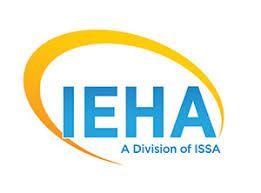

The revisions to the IEHA SP Credential now requires applicants to:
- Conduct a waste audit in their facilities, document findings, begin an intervention to reduce the waste stream, report results, and follow up on actions.
- Select two additional topics from the list below for demonstrating proficiencies in process improvement: A. Conduct an energy audit in one or more areas of their facility, document findings, identify and begin a process to reduce energy use, measure outcomes, and recommend next steps. B. Select a vendor or supplier and jointly review actions it has taken to green its processes and products. Evaluate and document sustainability claims of proposed or procured products. Develop a mutually beneficial process improvement project that involves collaboration with the vendor. Report results and follow-up actions. C. Institute a more sustainable, lower toxicity process for cleaning and disinfection to reduce the potential for health care-acquired infections (HAIs). Document team member participation, process improvement steps taken, and measured outcomes. Report results and follow-up actions. D. Conduct a water usage audit, select and begin a process to reduce water use, document findings, actions, and next steps. E. Conduct a study of the usage of blue wrap, a polypropylene plastic used in operating rooms to maintain sterility, and how hard packaging or recycling could reduce the related waste stream. Select and begin a process improvement and measure results. Report outcomes and follow-up actions. Conduct a waste audit in their facilities, document findings, begin an intervention to reduce the waste stream, report results, and follow up on actions.
- Document projects above in a single essay of 750-1,000 words explaining the approaches, rationale, team formation, specific interventions, measured outcomes, failures, and follow-up actions. A short PowerPoint presentation providing a visual record of the process is also required.
- Pass a qualifying classroom exam, which must be completed within 30 days following completion of the classroom course.
“We believe requiring this progressive hands-on effort from our members will do the most to ensure we walk our sustainability talk and truly make a difference,” noted IEHA Executive Director Michael Patterson.
Support from Sustainability and Systems Experts
Experts support IEHA both for its pioneering concept of an SP credential for facility professionals and for the three modules initially developed by IEHA as the basis of the SP Credential.
“Facilities operations personnel can have an enormous influence on the sustainability and human health impacts of their facilities. By choosing low-emitting products for alterations/additions/maintenance, green cleaners for maintenance, and ensuring facilities are operating correctly, personnel can contribute to the long-term sustainability of buildings over time. In these ways, they can improve indoor air quality and support human health and comfort in the buildings they operate,” said Josh Jacobs, director of environmental codes and standards at UL, LLC.
Steve Ashkin, founder and CEO of Sustainability Dashboard Tools & The Ashkin Group, also endorsed the new credential. “IEHA’s new sustainability credential will help their members be even greater contributors to the success of their organizations by helping them operate their facilities more sustainably. Not only will this protect human health and the environment, but it will improve the organization’s reputation and bottom-line,” he said.
Praise for the Modules
“IEHA has developed a thoughtful and rich learning program that can help housekeeping professionals hone their understanding and practice of sustainability. We applaud IEHA for highlighting Green Seal-certified cleaning products as a vital tool in a sustainable housekeeping program,” said Doug Gatlin, CEO of Green Seal.
Bill Bellows, Ph.D., deputy director of The W. Edwards Deming Institute, praised IEHA’s modules. “Dr. Deming stressed the need to develop new knowledge using a systems approach. We are gratified to see IEHA helping its members use techniques such as the Plan-Do-Study-Act (PDSA) Cycle as part of a Sustainability Management System (SMS). Following these time-tested methods helps ensure progressive success in the vital area of global sustainability,” he said.
Kevin Cahill, executive director of The W. Edwards Deming Institute and grandson of Dr. W. Edwards Deming, concurred with his colleague. “We are excited to collaborate with IEHA in providing new learning opportunities to support efforts in the vital area of global sustainability. This quest for new knowledge and understanding of the Deming leadership philosophy will provide a new lens through which to view systems and guide your PDSAs as part of a successful SMS,” he stated.
To enroll or for more information, visit www.ieha.org.
